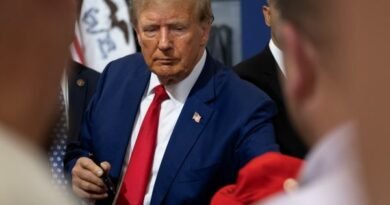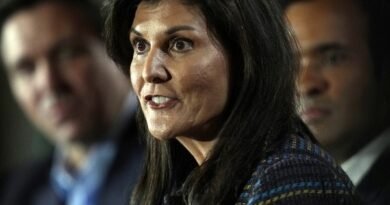Restraining Order Issued in Trump Case Prohibiting Media from Disclosing Potential Jurors’ Employers
During Donald Trump’s New York trial, the judge issued an order on Thursday instructing the media not to disclose where potential jurors have worked and to be cautious about revealing information regarding those who will be part of the jury for the former president.
Judge Juan Merchan took action after one juror was dismissed due to concerns about being identified for her involvement in the case once details about her were made public.
These events highlight the challenge of maintaining anonymity for jurors in a high-profile case while ensuring transparency in the courtroom to select an impartial jury.
Despite the setback, twelve jurors were selected by the end of Thursday for the historic trial involving a $130,000 hush money payment made just before the 2016 election to adult film actress Stormy Daniels to prevent her from disclosing her alleged sexual encounter with Trump years earlier, an encounter which Trump denies.
The dismissed juror informed Merchan that friends, colleagues, and family members were reaching out to inquire about her involvement in the case, leading her to doubt her ability to remain impartial due to external influences
Merchan directed reporters not to disclose the specific workplaces of potential jurors, present or past. This directive presented a challenge for journalists who attended the open court proceedings, with some media organizations contemplating objections to this restriction.
Even without releasing certain information, there were concerns that details about potential jurors might inadvertently become public, enabling their identification.
For instance, Politico identified one potential juror as a woman based in Manhattan working as an asset manager, with roots in England and Hong Kong, living with her self-employed partner.
Another potential juror was described as an attorney at a major media company residing in Gramercy Park.
On Fox News Channel, host Jesse Watters discussed details about seated jurors with a jury consultant, speculating about the political leanings of some jurors and their potential bias against Trump.
Apart from the restriction on disclosing employment history, Merchan also urged the media to refrain from including physical descriptions of jurors in their reports.
The challenge of maintaining anonymity for jurors is crucial, especially in cases like this, as anonymous juries have become more common with the rise of social media and concerns about juror safety.
In his prior trial, Judge Lewis A. Kaplan ordered the jury to keep their identities confidential to prevent disclosure of their service, a measure that has been respected so far.
Attorneys’ access to social media history of jurors was emphasized as a way to prevent potential bias and ensure an impartial jury selection.
Neama Rahmani, a former federal prosecutor, noted the difficulty of excluding jurors with extreme viewpoints in a high-profile case like Trump’s.
___
Associated Press writers Michael R. Sisak and Jake Offenhartz contributed to this report.
Copyright 2024 The Associated Press. All rights reserved. This material may not be published, broadcast, rewritten or redistributed without permission.




